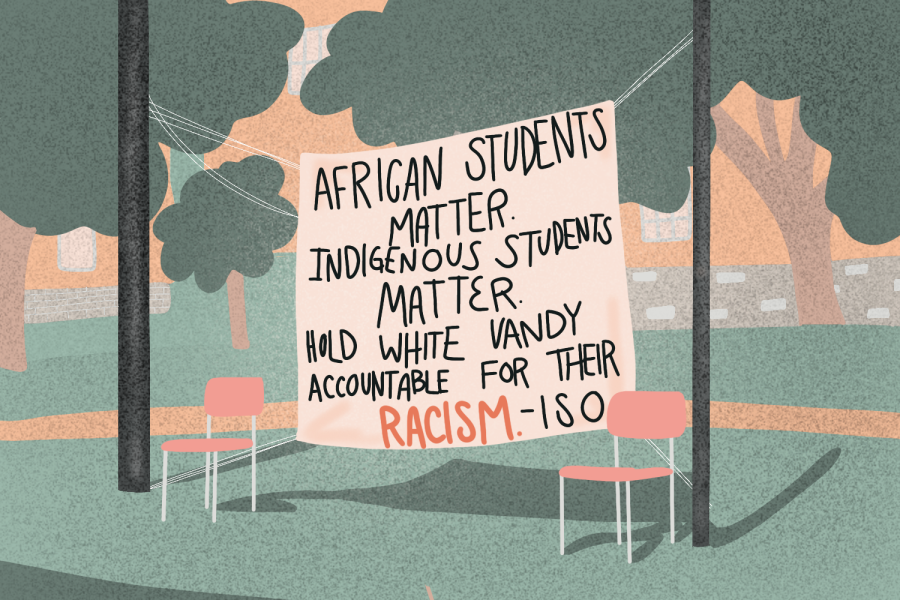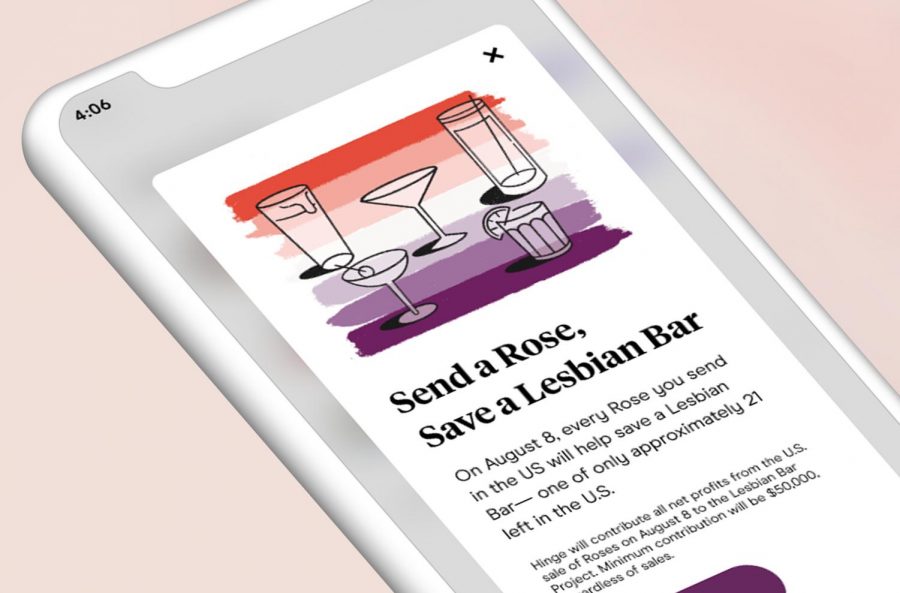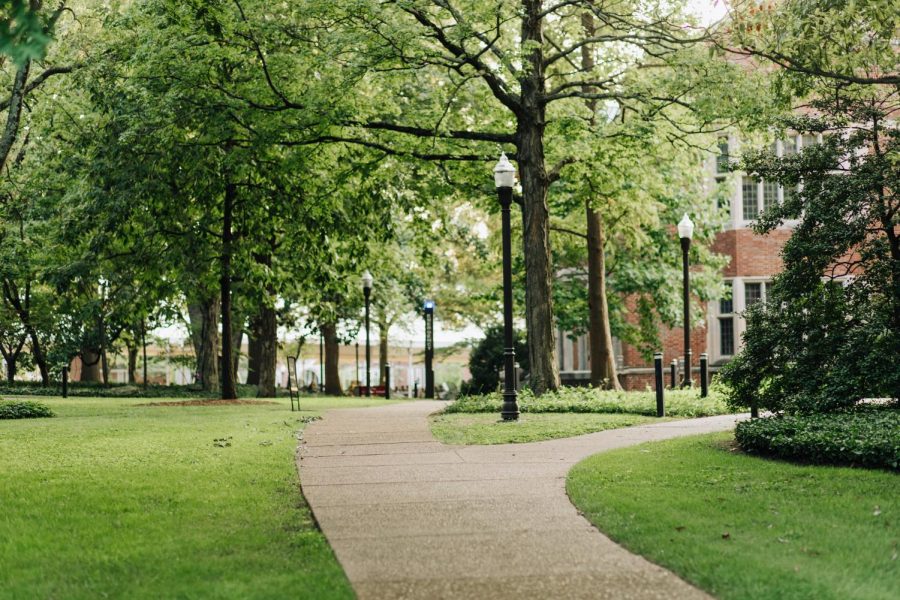I sat there in disbelief, counting. Four, five, six, seven.
Pictures of crying. Pictures of fires, suffering and protests. 20, 21, 22, 23.
Dark boxes and bright text. Raised fists in the air. “We must do something.” 38, 39, 40, 41.
My tallying was quick and long — nothing but the same heartbeat flipping over and over with each tap forward — but this repetition was unsurprising. I counted over 50 stories on my own Instagram feed, each sharing with the world that the war in Gaza, across both sides, was unacceptable and horrific. I didn’t share a personal identity with either side; I had my own strong opinions but wasn’t sure if what I was seeing online was true, informative or helpful.
Tapping along through Instagram stories — maybe while rotting in our beds, maybe while casually on the walk to class — is a motion and routine we are all too familiar with. During that time we spend on Instagram, countless stories we scroll through or post are pushing — a virtual shouting, if you will — for change, either through photos of unrest and suffering or by political messages with clever wording and loud, triggering phrases. I used to despise these so-called “Instagram politics” because I was tired of seeing it and didn’t understand the need for it. Neither are justifiable reasons for hating it, and I’m only just starting to recognize that.
Social media is a bubble, but…
What’s incredible about our social platforms is the extent to which we can curate them. Sometimes, the curation happens without us realizing it. (You’re welcome, Meta, for my data and for now knowing that, yes, I, Noah, am obsessed with memes about yapping and Alvin and the Chipmunks dance videos.) Ultimately, social media is an expert at building our own complacent world to trap us in for hours at a time, artificially and quickly building a bubble filled with people who share our interests, make us laugh or are fun to people-watch — though I would never participate in or advocate for the latter.
The danger of this curated bubble occurs when we care about something and want to spread a message because we may never reach our intended audience through social media. Plenty of the people who we would like to rally to our cause may exist in our feed. However, in my opinion, the current reality is that there are very few in your bubble who have the ability and influence to make meaningful change.
Therefore, the current climate of Instagram politics dictates that most people will post a message on their story, it will be viewed by some friends that agree and “randos” that move right along, and then, like all stories, it will disappear within the day.
My original thought when witnessing this pattern was: Why speak up at all? Implicitly, by making a temporary statement, you position yourself to others as someone with a temporary care for the cause you’re fighting passionately for. Your “virtual shout” only lasts for 24 hours, leaving every investment in your social cause strapped with a time limit.
To be honest, I think my critiques hold some weight but focus on the wrong things. Yes, you reach a limited audience for a limited time. However, right at the top of everyone’s feed, encased in a mesmerizing pink, purple and orange-hued circle, is a call to action you’ve created within seconds. It’s simple, attractive and effective.
Like I first mentioned, your social bubble is the perfect space for self-expression— a space for the expression of things that make us laugh and bring us joy (friends, places, Cody Ko’s wedding) but also equally for the things that make us angry, upset or hurt (death in the family, global suffering and oppression, community tragedy). It doesn’t need to serve any other purpose but to showcase to your curated community who you are and, by extension, what you care about. If I, as a follower, dislike or reject those things, I find it helpful to educate myself on the thing my Instagram friends care about to see if I should care about it, too. The other — easier but less helpful — option was to unfollow their feed and move on with my virtual day.
But, part of me also needed to face the hard truth: I needed to be educated about the war and suffering in Gaza that, in my privileged bubble, I wouldn’t have faced otherwise. I couldn’t just pass on my guilt by swiping out of the app because if something that horrific ever affected me or the people close to me, I would want people to take the time to understand and listen — a practice that the fast pace of social media life doesn’t encourage.
Being a bystander
For too long, I had also refused to consider my participation as a viewer or “bystander” of these Instagram politics. I mentioned that it is wonderful and dangerous that your social bubble is heavily curated, but it also means that it can be entirely within your control to curate how much you interact with Instagram politics. If it truly troubled me that much to see something that I was tired of seeing, I could curate my feed by unfollowing those who posted it. But while considering that solution, I realized I didn’t want to unfollow those people. In fact, I wasn’t really tired of viewing Instagram politics: I just didn’t understand it.
Let’s not just blindly view or reject Instagram politics. Instead, consider how to engage meaningfully with others on emotionally charged issues. At its center, I think it’s bigger than simple self-expression. We do have an inner or deliberate desire for people to join our causes, change their perspective or even financially contribute to movements that we care the most about. So, from someone who originally disliked and disengaged from Instagram politics, let me offer some things that could sway a bystander into action.
If you find yourself passively viewing causes on social media, consider diving deeper. Even if you know you’ll disagree, there’s little reason to turn your nose up at people and their beliefs without trying to understand the full picture. A little education can go a long way. It doesn’t mean that you have to conclude that someone was “right” or that your every waking hour now has to be dedicated to a cause, but it’s important to be aware of communities suffering outside of our own and, in turn, how we might be able to share some of our humanity with them. We don’t need to unfollow someone we disagree with, either: Our curated bubbles will benefit from a diversity of ideas in the long run.
I also want to advocate for the times when we need to take a break from social media or set healthy boundaries with what we see and consume. There are harmful things that exist online and social-emotional health is an absolute priority.
Not everyone who is posting on social media is performative in their motives, either. I wish I had considered that last bit a lot sooner. Showing some empathy for the ways in which each person is impacted by tragedy can mean more than you may realize. People are hurting and are using a platform to express that feeling — knowing they are reaching the largest audience they have access to.
To those who post “Instagram politics”
If you post about causes on social media, add to your stories by giving something for the viewer to interact with, such as a link that allows people to better understand the issue, a phone number to call those in power and demand action or a meeting time and place where interested people could find community and plan collective action. You might be surprised how many people are willing to participate and fight for causes you care about — and, by extension, the physical, emotional or financial resources they might offer.
Additionally, don’t blame those who don’t participate in Instagram politics for your cause. Just because they’re not putting something on their stories doesn’t mean they don’t deeply care; there will always be other options and opportunities for people to advocate for and create change. However, these are opportunities for change that we should take advantage of: Standing by is not an option. The victims in the center of domestic and global issues don’t have the privilege to step away, swipe out of the Instagram app and carry on with their day.
What we should do as a Vanderbilt community
When we followed the hundreds of Vanderbilt students on Instagram simply because they had “Vandy [insert graduation date]” in their bio, we didn’t give it a second thought. Now, sometimes, before even meeting someone in person, we’ve made lasting assumptions about those same peers who plaster their opinions on their socials. We aren’t meant to get along or have the same values as all 7,000 students on this campus, and, in a way, that’s a beautiful thing. We also might be taken aback at how much our values on this campus align if we consider putting in-person, thoughtful and empathetic interactions first before conflating one’s social media identity with one’s personal identity.
We’re given the impression all the time that different sides (and, therefore, people who identify with them) across charged issues are too estranged and that there’s no real chance we’ll get along. Yet, on our campus, we’ve been placed together in Nashville over several commonalities that drew us to this school in the first place. We can’t ever change someone’s beliefs, values or social media posts. But, I believe we can start to listen deeply and rebuild broken trust. And then, over time, we may find that people who trust each other also look out for one another.
These actions to improve the way we interact with Instagram politics take care and time — completely antithetical to the instant gratification and blinding fast pace of life that social media encourages. But, my message to the content creators and the bystanders is this: Things don’t need to be easy or simple to be in your best interest. Instagram politics is not what I once thought it was, and that’s okay. By practicing human empathy and a willingness to learn about what we thought didn’t involve us, we might be able to bring meaningful change for the communities within and beyond our tiny boxed screens.








